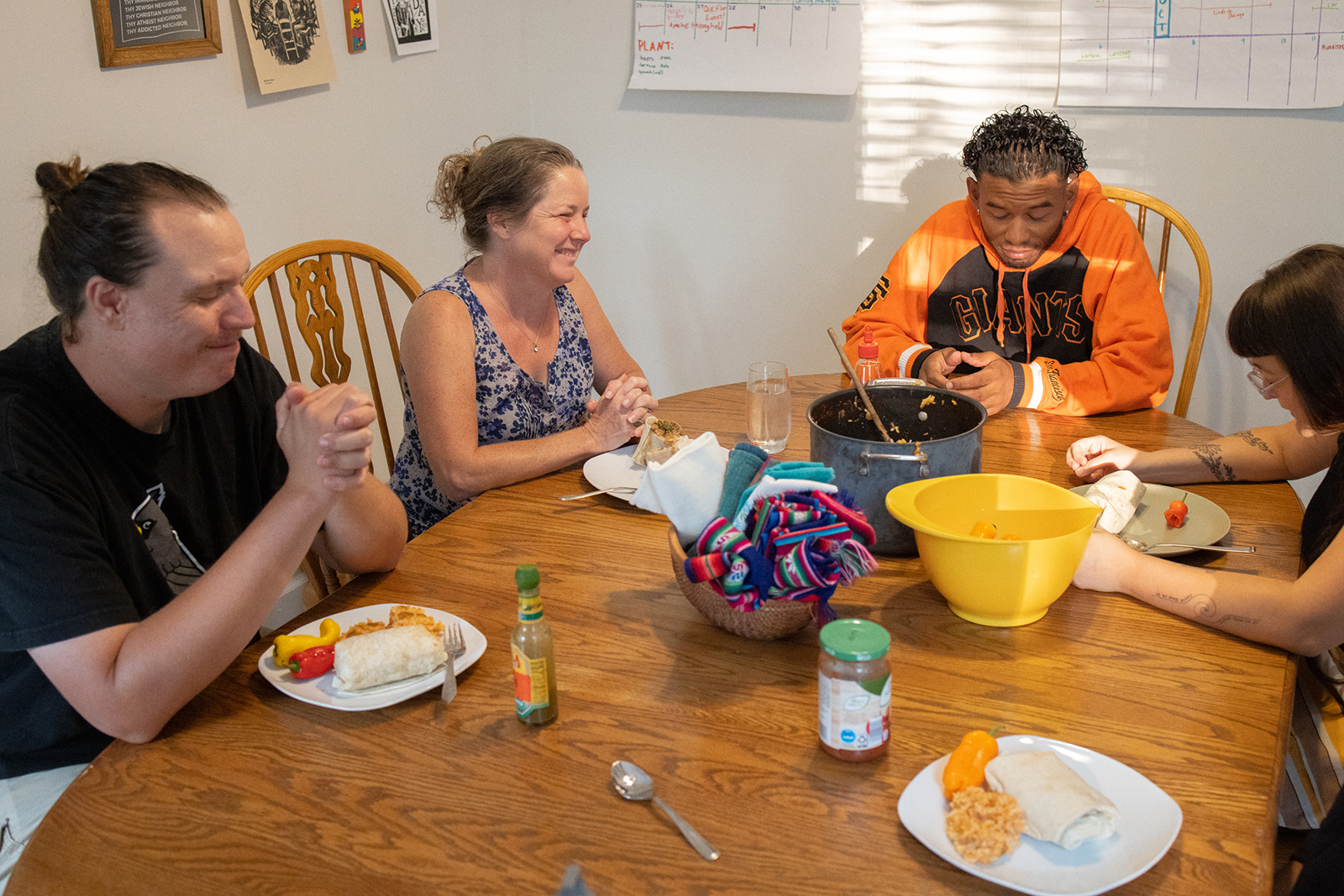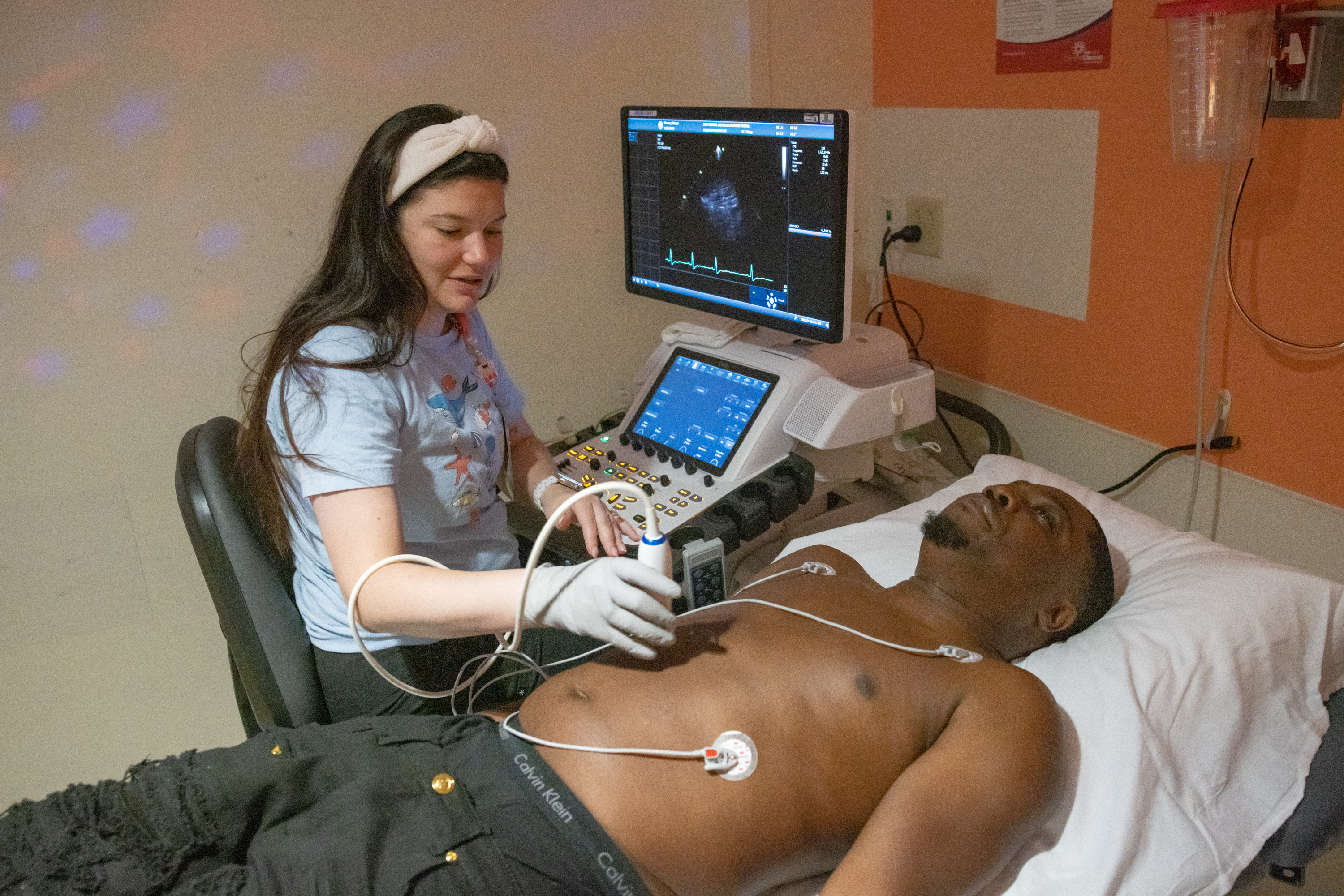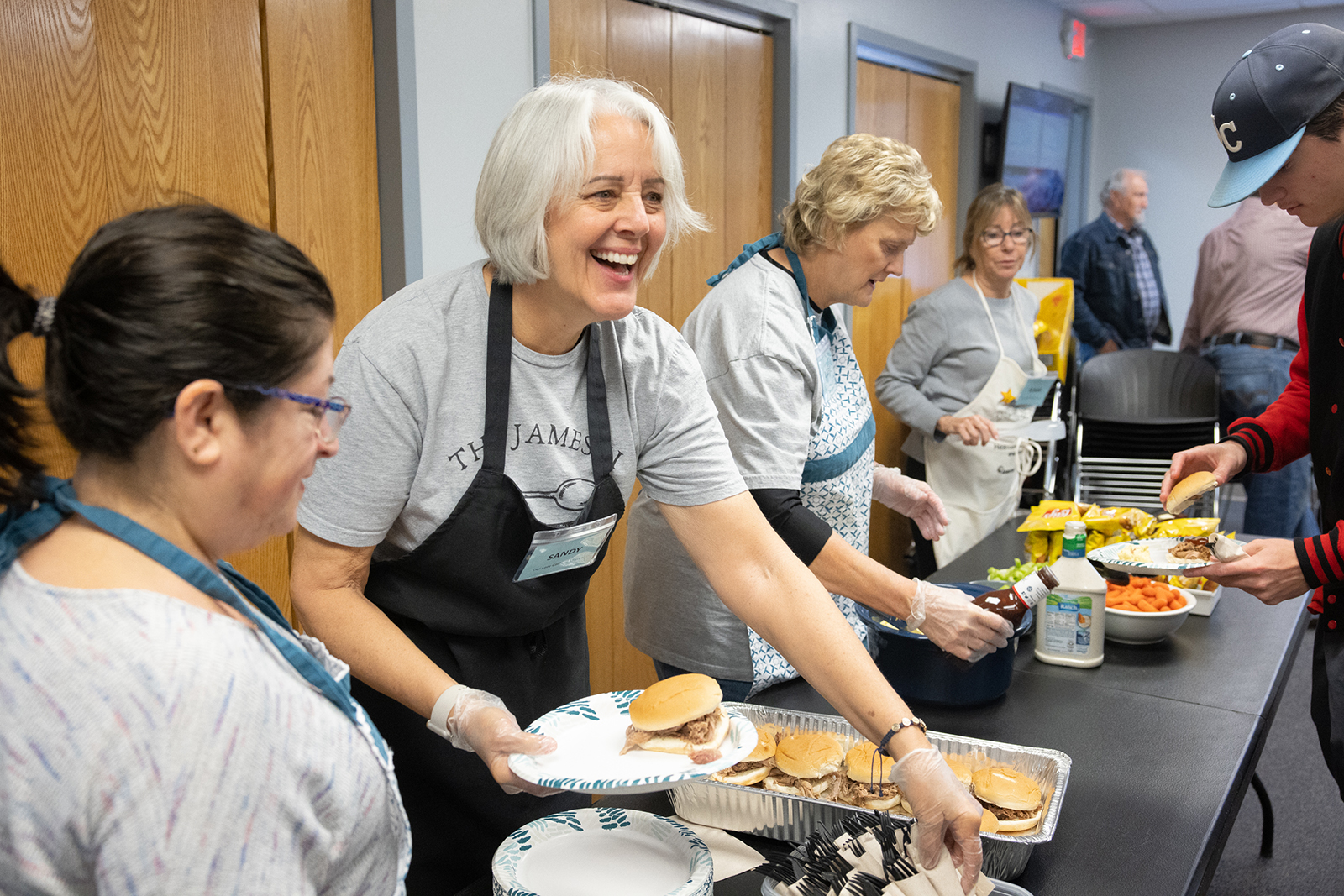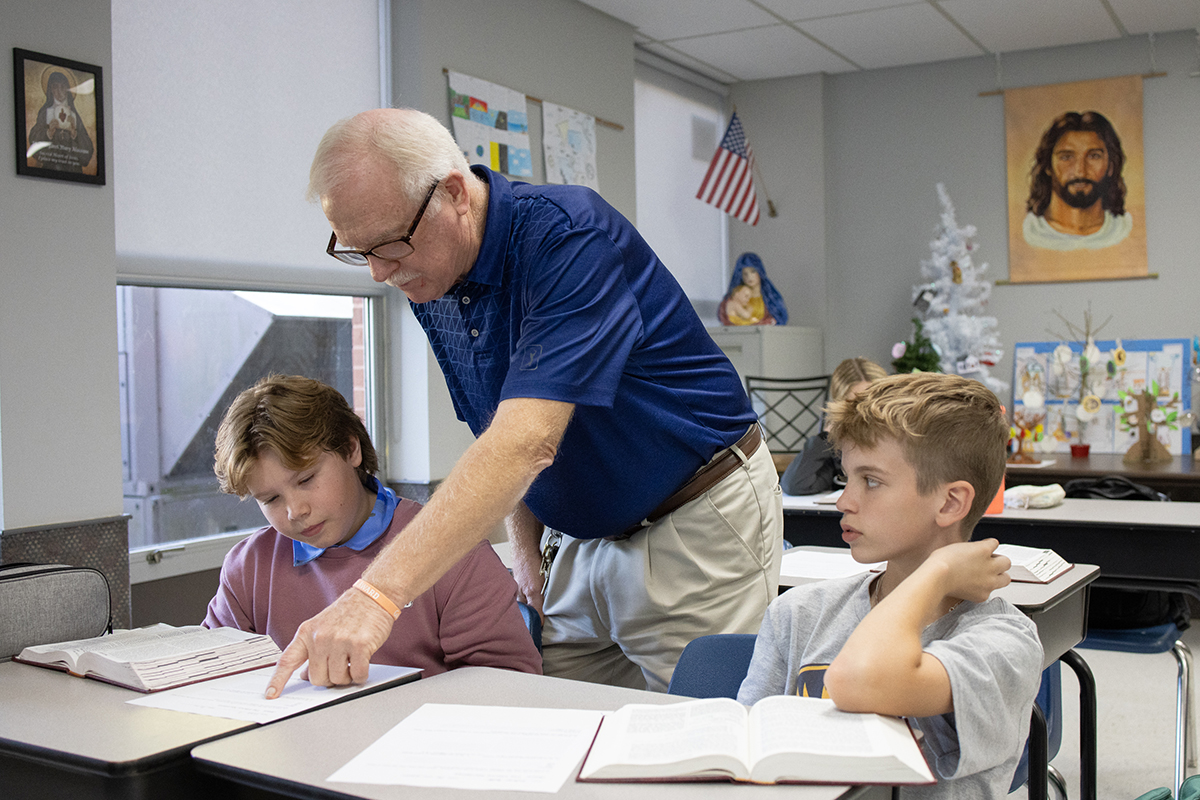Simbang Gabi is Filipino Advent tradition honoring the Blessed Mother
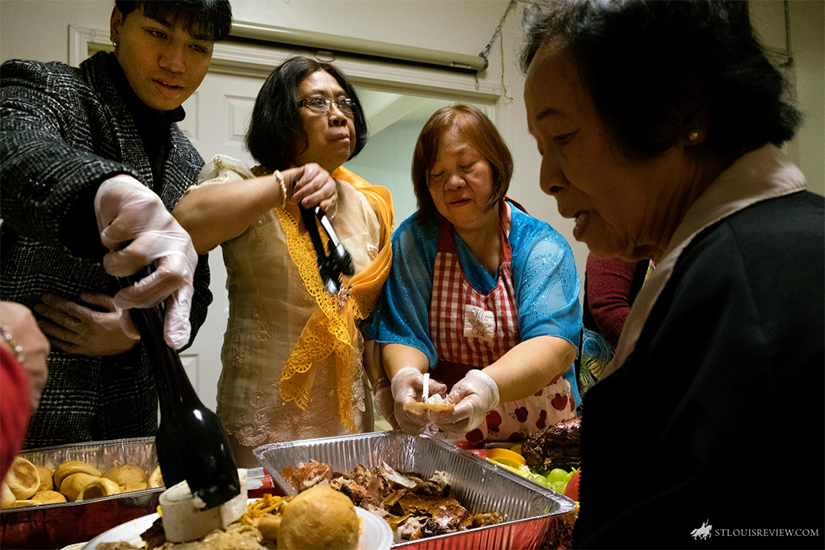
Lily Elznic has fond childhood memories of celebrating Simbang Gabi growing up in the Philippines.
She and her family, who lived about an hour outside of Manila, would head to church for Mass in the early hours of the morning — for nine days straight.
“With all our friends in the neighborhood, we’d all go to the church,” she said. “Along the way we’d watch the (Christmas) lights on the houses. After Mass, there would be a line on the street with food vendors — all of our favorite foods. Every morning it was a celebration.”
Elznic, who came to the United States in the mid-1980s, wanted her children to experience the same tradition. While Advent is a time of preparation for the coming of the infant Jesus, Simbang Gabi is a time to honor the Blessed Mother.
“This is celebrating the Mother of Jesus, because it all starts with her,” Elznic said. “It is a novena for our Mother.”
Simbang Gabi, which means “Night Mass,” in Filipino, is a novena — a nine-day series of Masses in anticipation of Christmas and to honor the Blessed Mother. The tradition has been celebrated by Filipino Catholics in the St. Louis area for decades. Novena prayers began in homes around the 1960s, and it became more formalized in the 1980s, with Masses being offered in church. The novena is organized by the Philippine Liturgical Society, which hosts several liturgical events in the Filipino tradition throughout the year.
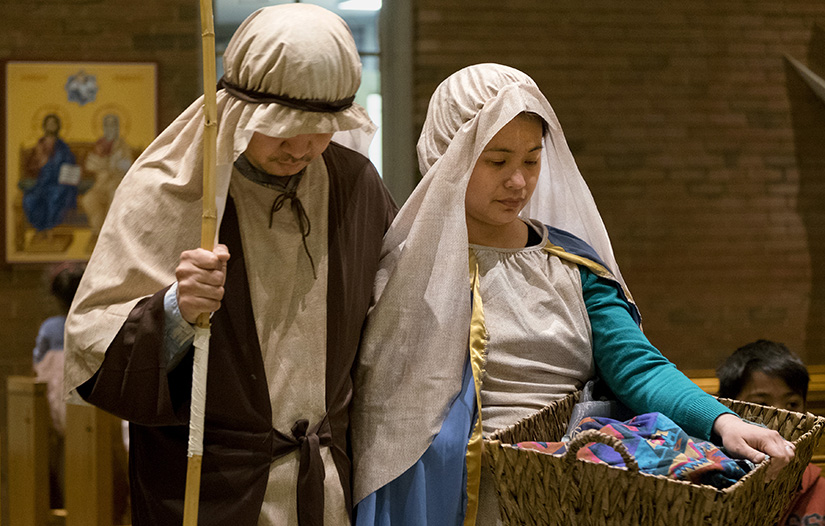
This year, the novena was celebrated at Holy Trinity Parish in St. Ann, which has a small community of Filipino Catholics, according to pastor Msgr. Francis Blood. While Masses traditionally are offered in the early hours of the morning, for practical reasons the local community offers Masses in the evening.
The tradition of Simbang Gabi traces back to the arrival of Spanish missionaries in the Philippines about 500 years ago. At the time, they had a tradition of celebrating pre-Christmas novena Masses in honor of the Annunciation. Those Masses were known as “Misa de Gallo” or “rooster Mass,” because they were celebrated at dawn. The early Masses accommodated farmers, who often began work before sunrise to escape the heat in the fields. Pope Sixtus V later declared that Mass should be celebrated before sunrise to accommodate farmers during the harvest season.
While the cultural aspect of the tradition is important, equally as important is the spiritual nature, said Father Ron Lorillo, who celebrated the novena Mass at Holy Trinity Dec. 19.
“Simbang Gabi is a testimony of our fervent joy,” said the assistant pastor of St. Anthony of Padua Church in Effingham, Ill. “It is our gift to the world. But we need to realize the gift is not the tradition we give. Simbang Gabi is only the means … we are the real gifts,” through simplicity and poverty of spirit, humility and kindness and sacrifice and self-gift. “I want to pose you a challenge tonight — are you willing to be a gift?”
After Mass, a feast featuring traditional foods, including a whole roasted pig, Filipino-style chicken adobo and empanadas, gave way to fellowship and reflection on the meaning of the celebration.
“The Philippines is 85 percent Catholic,” said Maria Ali Khan. “We revere the Blessed Mother. We pray the Rosary nightly, and every time we have a problem or something we pray to the Blessed Mother. She is the intercessor. The majority of Filipinos believe that.”

